Leadership Development & Organisation Futures Team (LDOF)
Newcastle University Business School
Faculty of Humanities and Social Sciences
What did you do?
We applied the Digital Residency framework to the design and development of the online spaces for learners on the Executive Education Programmes, creating learning activities and resources that support a continuum of engagement across synchronous and non-synchronous online spaces. We designed a Canvas Community that supports and encourages every learner to establish Digital Residency so that our learners have the opportunity to engage fully in online learning.
Dave White, Head of Digital Learning at the University of Arts, London, created the Digital Residency framework to describe and analyse people’s approach to online spaces. In this framework, we can choose to be present professionally and personally online across a continuum that ranges from visitor to resident. What it highlights is that online learning requires us to inhabit a third space – the digital space. As well as being physically at home and mentally at work, we need to be present online in the digital space too.
Who was involved?
Leadership Development and Organisation Futures (LDOF) Team: Dr Joanne James (Director), Dr Nicola Patterson (DPD Strategic Leadership MSc), Dr Amy Stabler (DPD Coaching & Mentoring MSc), Dr Jenny Davison (DPD Executive MBA), Dr Lucy Hatt (Senior Lecturer in Leadership Development and Entrepreneurship), Dr Sandra Corlett (Senior Lecturer in Leader Dev & Org Futures)
Michelle Barr, Learning Enhancement & Technology Projects Advisor (LTDS), Cissie Tsang, Collaborative Projects Manager (NUBS)
How did you do it?
Here is a brief outline of how we used the Digital Residency framework when designing the digital spaces for our learners.
Bottom left quadrant – digital design features and intent: this is where we have integrated digital design features that support the establishment and development of social and collaborative engagement, as well as skills and knowledge development resources. We have designed our Canvas Community sites to support the development of a Community of Practice for our learners. We have included resources for Building Networks and Personal Development for example, as well as a Reflexive Practice Kit. In this online space we are engaging with our learners as professional visitors.
Click on image to expand
Top left quadrant – Learner experience of digital resources: here we engage with our learners as personal visitors. In this space, we have considered the aesthetics of the virtual learning platform, ease of navigation and the general impression of the space. We have made it clear for our learners to see what they need to do before and after each synchronous session and integrated a variety of types of learning materials ranging from videos and discussion boards to group activities using integrated software such as Padlet. We have embedded the zoom link for the synchronous sessions into the module sites so everything is easily accessible in one place online, and we use the same zoom link every time.
Click on image to expand
Top right quadrant: we can build relationships with our learners as personal digital residents and facilitate peer to peer relationship building. We do this by acknowledging, sharing and relating to any domestic intrusions, encouraging “off grid” student WhatsApp groups, having regular check-ins at the start and end of synchronous teaching sessions, using music and ambient sounds, integrating wellbeing activities, incorporating playful tasks and maintaining a sense of humour.
Click on image to expand
Bottom right quadrant: for professional learners to integrate their work identities and become professional residents as well as personal ones, we designed activities that require the integration of theory and practice, requiring learners to reflect on how theory has informed their practice, and encouraging learners to identify opportunities to use practice to develop their theoretical understanding.
Click on image to expand
Why did you do it?
The Executive Education programmes were originally designed as blended learning programmes, with flipped learning activities incorporated into the online learning space and within the classroom. Given the considerable amount of time online it was important to include space, time, and resources to support learners in developing digital residency. However, the move to fully online, necessitated by the pandemic, made creating engaging online spaces and a sense of digital residency essential for our learners. If our learners only “visit” online learning spaces rather than residing in them, we are failing to engage them fully. Learning is likely to be more superficial and less transformational – and altogether less satisfactory. We need to find ways to allow and encourage our learners to develop a digital identity in which they feel safe to integrate their “shoes-off” self and establish digital residency. As with many of the ways that Covid19 has forced us to change our educational practices; being aware of the various ways our learners engage with the digital space will be of benefit long after we get back into the classroom. Recognising and valuing the “reality” of the digital space will enable us all to establish our own digital residence more consciously, and in doing so, we will encourage more learner engagement and become better educators.
Student Voice
Our learners have commented on how supportive they feel the digital learning environment that we have created is.
“You’ve created a really supportive learning environment” Learner
“enjoying the mix of materials – videos, discussion boards, activities” Learner
“really enjoying the sessions, the discussions are fascinating” Learner
Graduate Framework
This approach develops the following attributes:
- Digitally capable
- Collaborative
- Engaged
- Creative, Innovative and Enterprising
Staff can find out more about the Graduate Framework on the University intranet.
Acknowledgements
Thanks to Dr Helen Webster, Head of the Writing Development Centre, Newcastle University, whose presentation in the HaSS Education Community Room, introduced us to the work of Dave White on Digital Residence, and to Rosalind Beaumont and Dr Tracy Scurry who lead the HaSS Education Community Room.

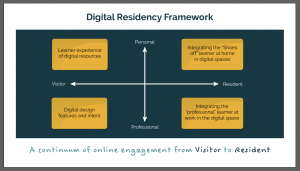
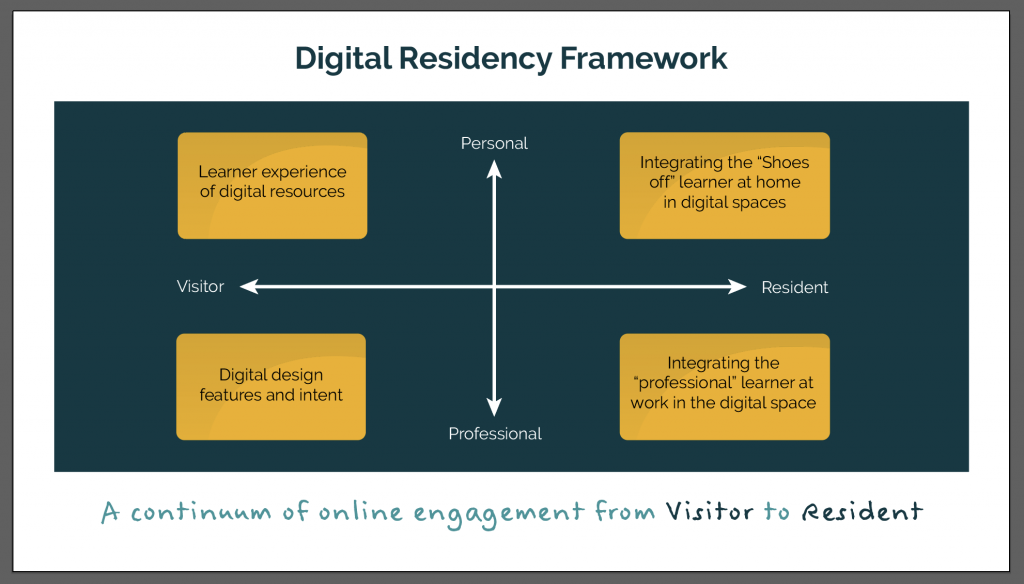
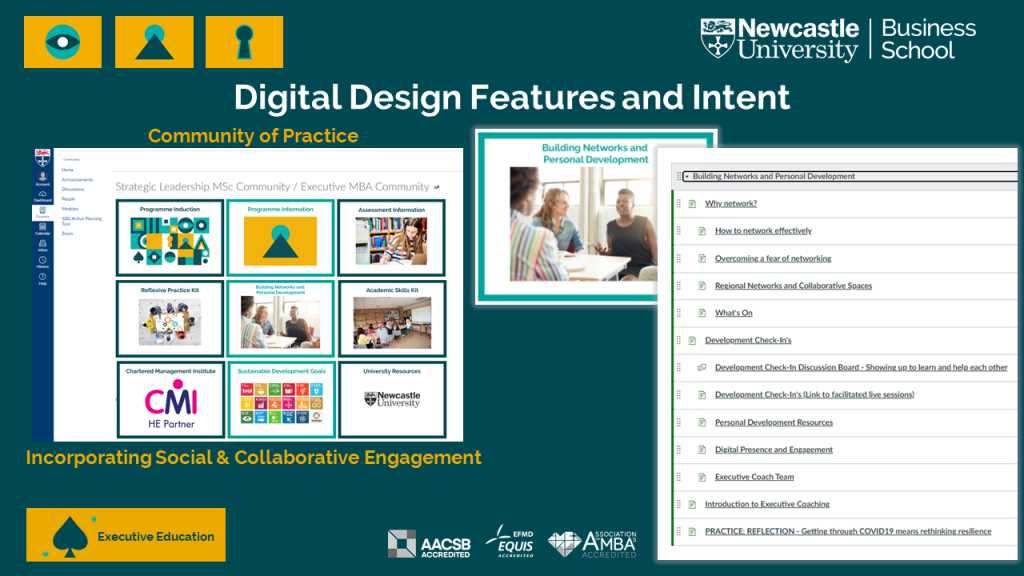
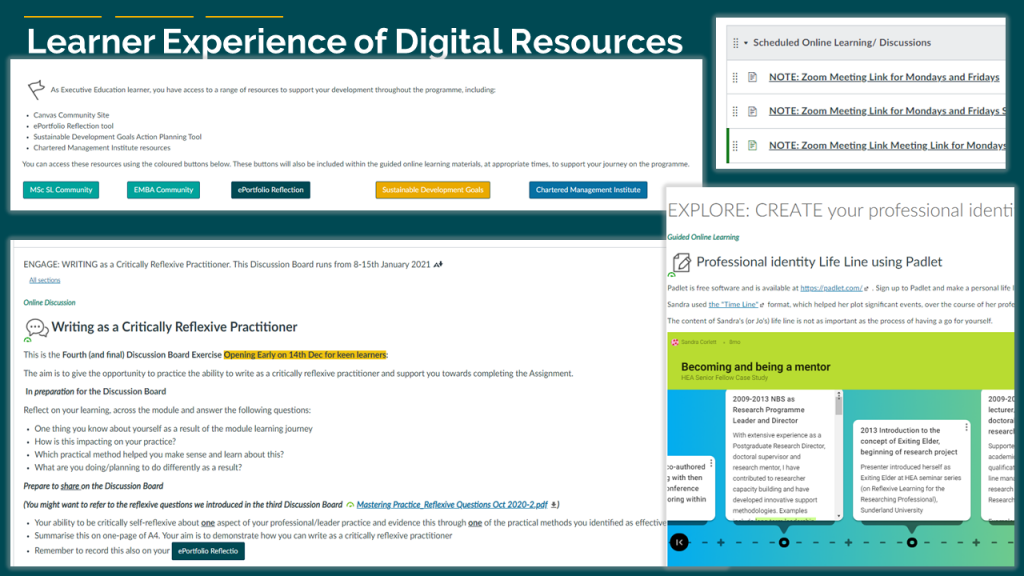
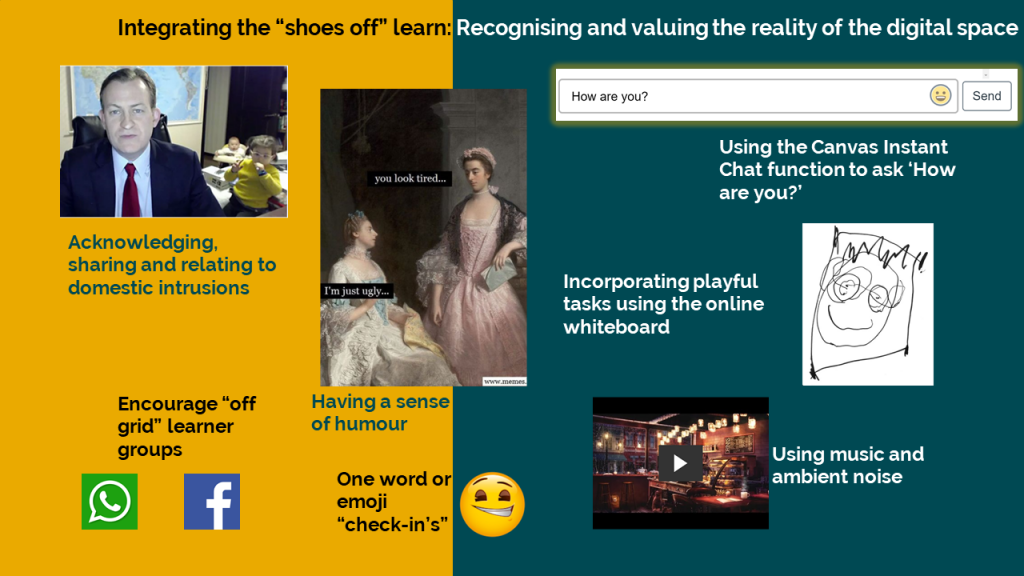
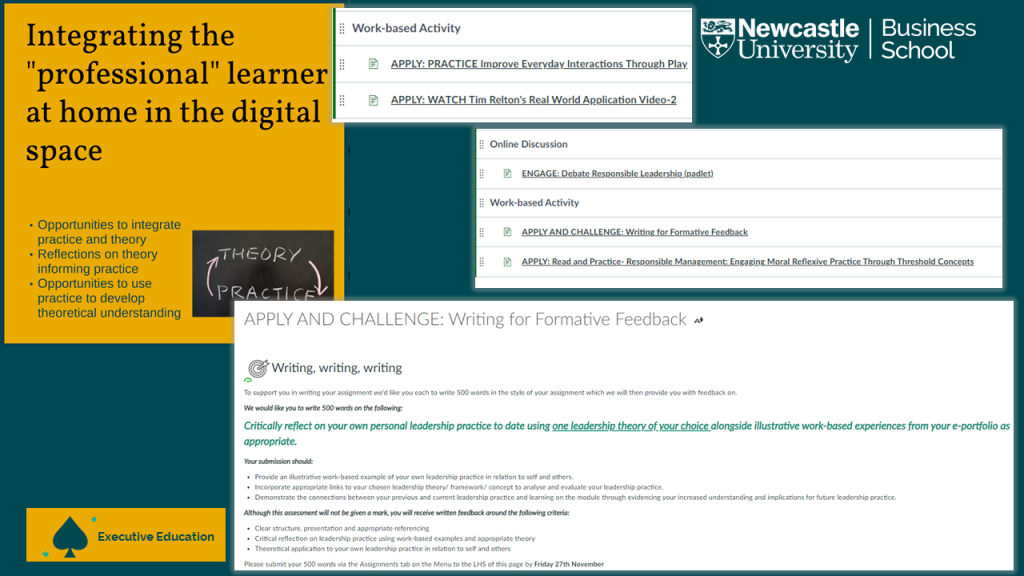
 Michelle Barr Learning Enhancement & Technology Advisor
Michelle Barr Learning Enhancement & Technology Advisor